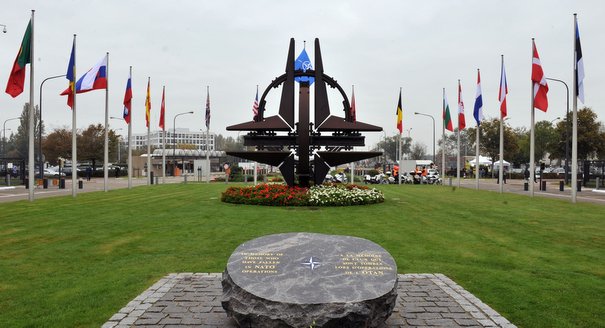The Bratislava Global Security Forum that brings together security experts from both sides of the Atlantic provides a perfect setting to talk about NATO.
After all, with the NATO Chicago summit just a few weeks away, politicians and military experts could talk at length about how the Europeans are not spending on defense and how the United States is shifting attention away from Europe towards Asia.
But there was one issue that none of the numerous NATO officials gathered in this small but elegant capital tucked in central Europe wanted to touch: Iran.
When any of them were asked about Iran, they simply ignored the question.
This is despite the fact that we could be facing war, unless negotiations between the five permanent members of the United Nations Security Council, plus Germany, and Iran that were begun this past weekend in Istanbul, achieve a breakthrough.
NATO will not discuss how it should react if Iran did acquire a nuclear weapon capability or if Israel attacked Iran in a bid to slow down its nuclear capability program, or if Iran then retaliated against Israel. The repercussions for any of these scenarios would be terrible.
If any nation wants to bring up the issue formally at NATO headquarters in Brussels, the initiative usually gets stopped by Turkey.
Yet Turkey, which has already agreed to host part of the US missile shield, will surely be asking for some kind of security guarantees from NATO if Iran obtains the bomb, or indeed if Iran threatens Israel.
The United States goes along with Turkey derailing every attempt at a formal discussion of Iran. The threat of war there gets talked about only in small groups. At least, there is some sharing of intelligence.
The argument is that if Iran, or Russia, or China got wind that the North Atlantic Council, or NAC that consists of the ambassadors, were discussing Iran, they would interpret that information as NATO preparing some kind of action against Iran.
But NATO could counter such suspicions by stating openly that Iran presents an important political and strategic issue because it borders on Turkey, a leading NATO member, and because an Israeli attack on Iran has such major security implications for the region and Europe.
Look how some of the Allies are already preparing. The United States has sent a second aircraft carrier to the Persian Gulf. France and Britain vessels are moving towards the Straits of Hormuz, too. Russia, according to NATO diplomats, is repositioning troops southwards to the border with Azerbaijan. In other words, countries are making contingency plans.
Except NATO.
This is a big mistake. In a fascinating paper recently published by the Research Division of the NATO Defense College in Rome, Jean-Loup Samaan, argues that a nuclear Iran would represent a major test for NATO.
It is worth quoting what Mr Samaan, a lecturer at the NATO Defense College, says about the implications for the alliance: “A nuclear-armed Iran would undoubtedly be a game changer for NATO partnerships. If Iran becomes a nuclear-armed country, NATO as a whole and individual Allies bilaterally engaged in the region will eventually face a dilemma: unless they reinforce their relations with regional partners through security guarantees these countries will look for alternative solutions.”
Yet even discussing the Mediterranean partnership (that consists of most North African and Middle East countries) has become a thorny issue for NATO.
The main reason is that Turkey, according to senior NATO diplomats, is blocking efforts by NATO to strengthen ties with Israel.
But on this issue, NATO does not have the luxury of time. It urgently needs to have an open debate about Iran. It also should invite its partnership countries as soon as possible for intensive consultations about their fears and interests.
It is not the day after that matters. It is the day before if NATO as a political organization is to have any meaning, or indeed relevance.






.jpg)